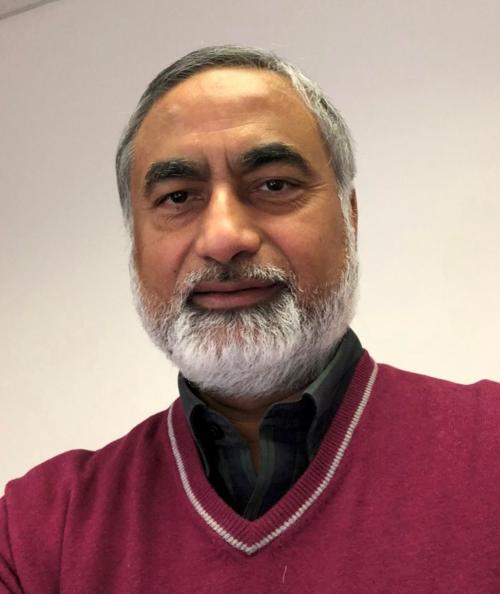America’s more than 3 million proud Muslims shouldn’t take the New Zealand massacre at two mosques as a wake-up call. Rather, it is an opportunity to focus on solutions to avoid such incidence from happening again.
According to the Pew Research Center, the Muslim-American population will double by 2050. While Muslims constitute nearly 1.6 billion people, or 23 percent of the world’s population, we don’t have a voice in our communities and nations because we are divided. If we can unite, we cannot only learn how to survive, but how to lead in America.
America is a land of opportunity and is open to business for all, regardless of ethnicity, color, religion or even political affiliation. It’s time for my fellow American-Muslims to understand the basics of the American system and how best to capitalize on it to help every American.
I share the following recommendations to empower Muslim-Americans to build an inclusive and prosperous America free of violence and hate.
Some elected officials and some mainstream media outlets have created an environment of fear among our fellow Americans based on misconceptions they have about Islam. This has been done to achieve political gains. These misconceptions include: Islam is a religion of violence, Muslims are terrorists, and Muslims are here to impose Sharia laws. Education is critical to remove these misconceptions.
We need to educate all Americans that Islam is not what you see on TV. Islam is a religion of peace. The Muslim community in Wisconsin has been very active in organizing such events in cooperation with our elected officials, law enforcement, faith leaders and local media. These well-attended events are having a huge impact on building a peaceful and inclusive community free of fear. We need to continue organizing these events. This will contribute toward a deeper and more accurate understanding of Islam and Muslims by non-Muslims.
We also must create think tanks to provide facts about Islam and Muslims. The media should use this resource to communicate our message based on facts and not fictions. Some mainstream media and top elected officials have a long history of a double standard when it comes to covering terrorism: not labeling attacks by white perpetrators as “terrorism,” while quickly labeling attacks by Muslims as “terrorism.” This causes major safety concerns for the Muslim community.
American Muslims, particularly young Muslims, need to be actively involved in America’s political process. If we are not at the table, we will certainly be on the table. If we do not define our self-interests individually and collectively, we will be defined by others. Participation of Muslims in American politics has never been as critical as it is now. Muslims shouldn’t work in silos when it comes to policies. We must show that our concerns are the same as those of other Americans, including civil rights, civil liberty, fairness, education, jobs, health care, immigration and foreign policy. Muslims should prepare to run for public offices at local, state and federal levels.
We must hold our elected officials of both parties accountable if they don’t condemn all hate groups in the strongest way possible — regardless of religion, color, ethnicity, belief or ideology. Our representatives also should stop associating any terrorist with his or her religion, because no religion teaches terrorism. We must demand that each state pass anti-hate resolutions in a bipartisan way, because hate is not a Republican or Democrat issue. It’s a human issue, and so many innocent lives continue to be lost for no reason.
We also need to start some debate on what is free speech and when does free speech becomes a hate crime. Too many hate groups in America use free speech as an excuse to incite violence and killing. Their number has grown significantly in the last two years. How is terrorism defined at the state and federal levels?
We need to revisit our state and federal laws and make changes if necessary to protect innocent lives, while still enjoying the freedom of speech our Founding Fathers envisioned for us.
This editorial was first published in the Wisconsin State Journal.










